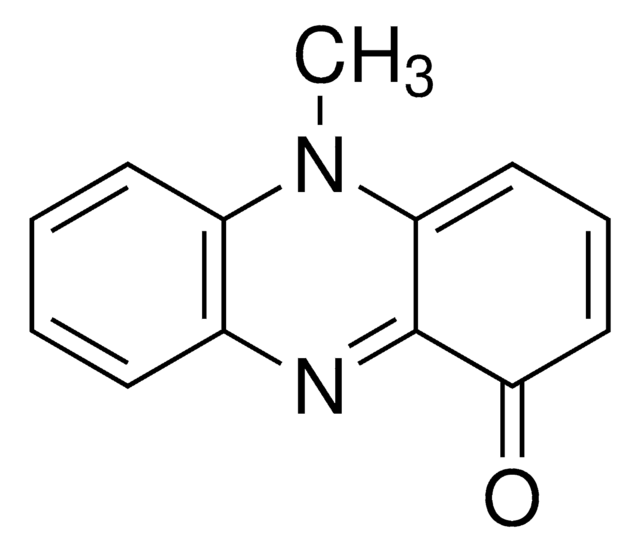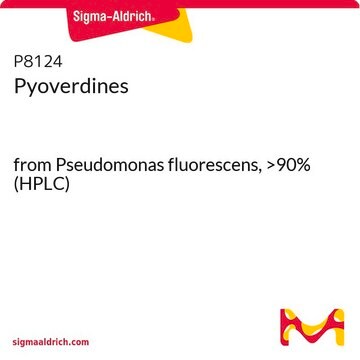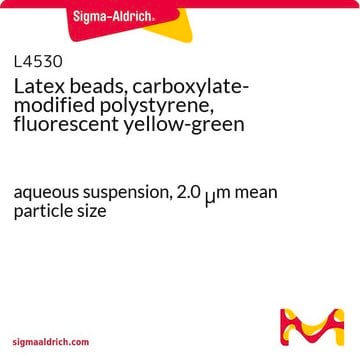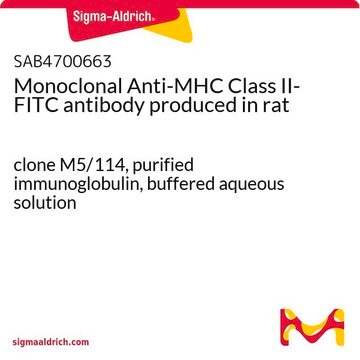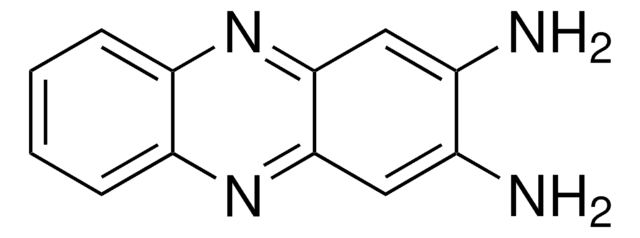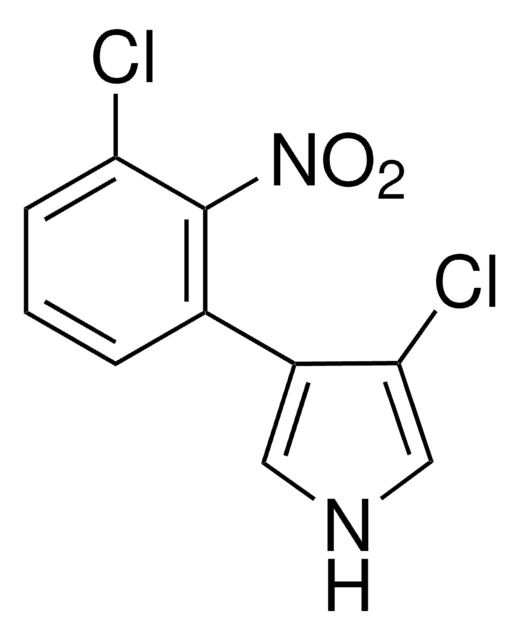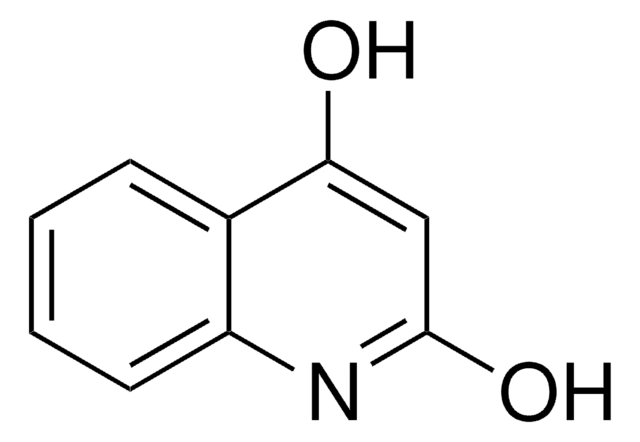P0046
Pyocyanin
from Pseudomonas aeruginosa, ≥98% (HPLC), solid, redox-active phenazine
Synonym(s):
5-Methyl-1(5H)-phenazinone, Pyocyanine, Sanasin, Sanazin
About This Item
Recommended Products
product name
Pyocyanin, from Pseudomonas aeruginosa, ≥98% (HPLC)
biological source
Pseudomonas aeruginosa
Quality Level
Assay
≥98% (HPLC)
form
solid
solubility
DMSO: soluble
acetone: soluble
chloroform: soluble
ethanol: soluble
shipped in
wet ice
storage temp.
−20°C
SMILES string
CN1c2ccccc2N=C3C(=O)C=CC=C13
InChI
1S/C13H10N2O/c1-15-10-6-3-2-5-9(10)14-13-11(15)7-4-8-12(13)16/h2-8H,1H3
InChI key
YNCMLFHHXWETLD-UHFFFAOYSA-N
Application
Biochem/physiol Actions
Preparation Note
Signal Word
Warning
Hazard Statements
Precautionary Statements
Hazard Classifications
Acute Tox. 4 Oral - Eye Irrit. 2
Storage Class Code
11 - Combustible Solids
WGK
WGK 1
Flash Point(F)
Not applicable
Flash Point(C)
Not applicable
Certificates of Analysis (COA)
Search for Certificates of Analysis (COA) by entering the products Lot/Batch Number. Lot and Batch Numbers can be found on a product’s label following the words ‘Lot’ or ‘Batch’.
Already Own This Product?
Find documentation for the products that you have recently purchased in the Document Library.
Customers Also Viewed
Articles
Bioactive small molecules for immune system signaling target identification/validation and antibiotics, antivirals, and antifungals offered.
Our team of scientists has experience in all areas of research including Life Science, Material Science, Chemical Synthesis, Chromatography, Analytical and many others.
Contact Technical Service